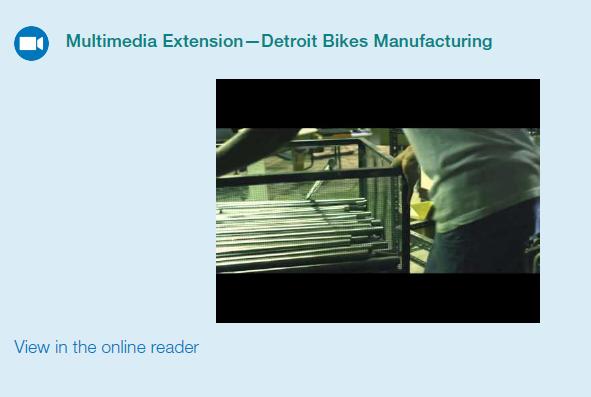Unexpected problems often require unexpected solutions and the history of transportation is full of surprises and ingenious
Question:
Unexpected problems often require unexpected solutions and the history of transportation is full of surprises and ingenious solutions. Back in the late 1800s, major cities were facing a huge problem. In New York City, the vast amount of waste generated by horse-drawn transportation (an estimated 3 million pounds of manure each day) was increasing at an alarming rate. In fact, it was predicted that if the problem remained unaddressed, manure would reach the third story windows of Manhattan by 1930. New York City, along with other major cities at the time, struggled to develop a remedy to this dire situation. Thankfully, an unexpected solution rendered the need for horse-drawn transportation obsolete: the invention of the automobile. By 1912, the number of cars outnumbered horses and by 1917, the city's last horse-drawn streetcar stopped running. Fast-forward to the 1950s and the automobile market was thriving, with most of the production taking place in Detroit, Michigan. Nicknamed the Motor City, Detroit's automobile sector employed upwards of 300,000 individuals at the height of its production. But by the 2000s, Detroit's automobile industry was in severe decline. The shuttering of auto factories resulted in unemployment, record levels of defaults in housing, and an estimated 78,000 city structures were abandoned.
From those challenges emerged new industries and now Detroit is home to a new transportation industry . . . bicycles. What is so surprising about this is that the bicycle industry in the United States has been dwindling as brands such as Huffy and Trek moved the production of their bicycles to other countries. In fact, 99% of bicycles sold in the United States are not made here.
However, a few bicycle companies in Detroit are experiencing unprecedented growth. Take, for example, Detroit Bikes. Founded in 2011 by Zak Pashak who invested $2.5 million into a 50,000 square foot factory, Detroit Bikes not only assembles bikes in Detroit but also manufactures as many of the parts as possible. The factory is staffed by auto industry veterans from GM and other carmakers and is capable of producing up to 150 bikes per day and assembling up to 400 bikes per day.
But, the road to success has been rocky for the company. In an interview, the founder Zak Pashak admitted that several decisions that the company made early on were mistakes. One example was that the company focused on consumers rather than on the distribution channel for selling to consumers. He also notes that his attitude was overly confident and that affected his decision making along the way. For example, when he thought that the organization was going to get a large order in San Francisco, he ramped up staffing to 50 employees. When that deal fell through, he cut back staff to only 10 full-time employees. The company produces up to 10,000 bikes per year and in 2020, began assembly of Canadian-owned Schwinn's classic Collegiate cruiser in a partnership with them. Detroit Bikes isn't the only company vying for attention in Detroit. Shinola is a large competitor who made the decision to hand-assemble their bicycles in Detroit rather than creating most of the parts locally, as Detroit Bikes does (except for their recent partnership with Schwinn, which is assembly only). Shinola was founded in 2011 and made the decision to diversify its offerings to include watches (they produce up to 700 watches per day) and leather watch bands and other leather products. Their watches are sold in companies ranging from Walmart to Neiman Marcus.
Shinola employs over 500 people. They design all their products in Detroit and then source parts globally with assembly back in Detroit as well. Their decision seems to be paying off, as their brand and diversification strategies have led to the expansion to hotels (The Shinola Hotel, a boutique hotel in Downtown Detroit, is 8 stories high) and an online publication, The Journal.
Even though Detroit has seen unemployment rates as high as 21%, Shinola decided to pay its employees more than minimum wage and offer generous medical benefits. As the founders say, "If we take care of our people, they'll take care of our customers and our business." This decision has paid off so far as the company continues to enter new markets with a consistent mantra of "We start with the best product we can find (or imagine) and then make the numbers work." The stories of Detroit Bikes and Shinola demonstrate that there often are multiple ways to solve problems. While both companies saw an opportunity to invest in the economy of Detroit, they each took different paths. Only time will tell if their decision to locate in Detroit and go "all in" on the city as part of the brand will pay off for Detroit Bikes and Shinola.

Questions
1. Were you surprised by the solution to the problem of horse waste in New York City during the late 1800s? What implications do you think this case has on decision making and generating alternative solutions to problems?
2. In addition to hand-assembling their bikes, Detroit Bikes manufactures many of their own parts. Do you think the decision to manufacture their own parts will be profitable in the long run? Please explain.
3. How did the overconfidence of Zak Pashak, founder of Detroit Bikes, negatively impact the company?
4. In what way(s) are the decisions made by Shinola similar to Detroit Bikes? In what way(s) are they different?
5. Please give two examples of how Shinola decided to invest in its employees.
Step by Step Answer:

Essentials Of Organizational Behavior Bridging Science And Practice
ISBN: 9781453339244
1st Edition
Authors: Talya Bauer, Berrin Erdogan





